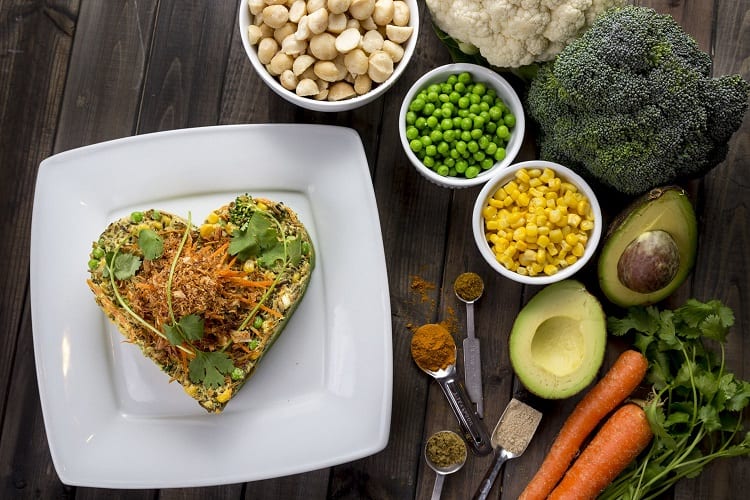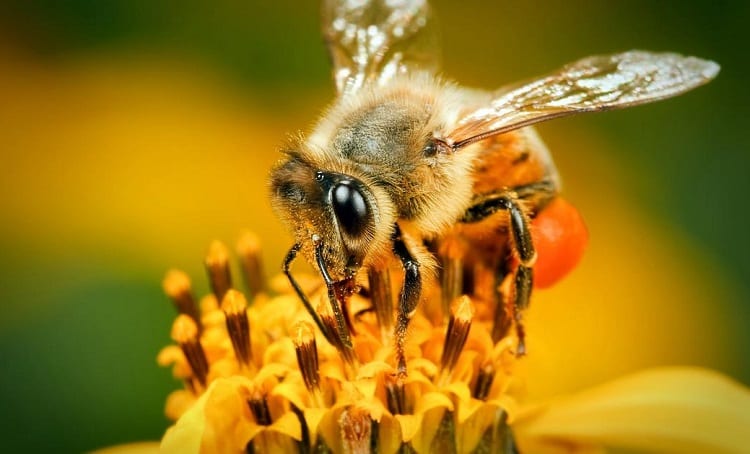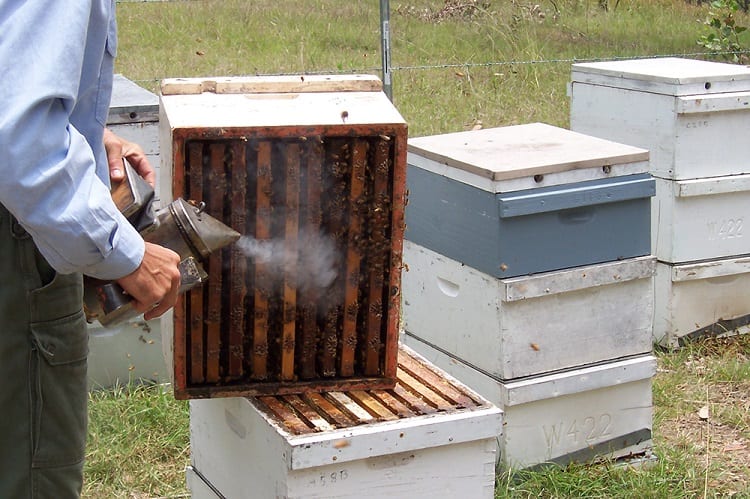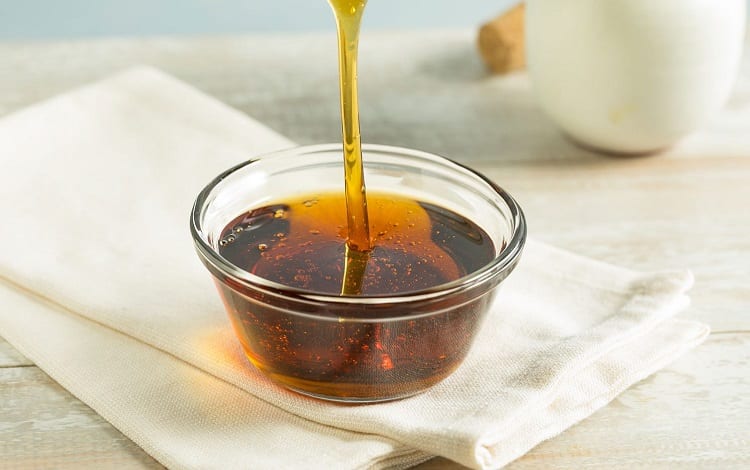Bees are amazing creators with great wisdom and unity above human levels.
It’s unbelievable how bees capture the best sugars from flowers and plants to support their immediate biological needs and store them for the future. So bees are insects created with strong paternity instincts that are above the level of many humans.
Nonetheless, humans have higher dominion over the creations, and most consider animal products as food and a source for material possessions. But for vegans, such actions are against ethical standards and moral values to protecting life.
The most intriguing subject in this article is honey, and the question lies on whether vegans consider honey as rightful food or not.
Follow on to understand the complexity surrounding honey as fit for the vegan or not.
Contents
What Does Vegan Actually Mean?

Before delving deeper into honey and whether it’s fit in a vegan diet, it’s imperative to understand vegan’s true meaning.
Vegans follow a practice that disregards treating animals as commodities. Such humans are against harming or subjecting animals in unfavorable conditions for direct or indirect exchange.
In the quest to stop cruelty towards animals, vegans choose not to eat animal meat and by-products.
Yes, anything to do with coercing animals to give up their products is disgust to a vegan. Such individuals substitute animal products with plant-based diets as the only option of supporting their body functions.
As simple as it may seem, becoming a vegan is not an overnight decision. Ditching that goose or duck is not a walk in the park. Subjecting the body to a plant-based diet is not a win-win situation. So much is put into consideration before becoming a complete vegan. For instance,
- It’s a gradual process that involves ditching the meat and dairy products slowly. There’re many advantages accrued to the slow process. For example, taking it slow allows the body to adjust to a new digesting method and absorbing nutrients. It will also enable the person to learn new techniques for cooking, storing, and sourcing vegetables and fruits.
- Becoming a vegan works through alternating the meats, by-products, fruits, and vegetables, which can take 2 to 3 months depending on the person? Notice that whenever the body lacks a given substance, it reacts by developing cravings, which may distract the vegan process. Therefore, alternating while reducing the meat and the by-products are a sure process to become a complete vegan.
- Relying on a plant-based diet to sustain normal body processes is not easy. It requires mastery of skills and information on which veggies or fruits to substitutes with the meat or dairy products and gain maximum benefits in the body. Remember, overconsumption of specific food for a long time can be harmful to humans and potentially create further complications.
- The beginner should consume supplemental proteins, vitamins, and minerals to fortify the body against diseases and infections.
Bees Can’t Agree To Give Us Their Honey

It’s common sense that bees cannot agree to give us their honey. It’s like getting back in the house dead hungry and throwing the available food away without minding the situation. Just as hard it gets for humans to waste food and money, so does for the bees to lose honey.
Bees to honey are equivalent to money for humans as no one wants to lose their hard-earned money, neither are the bees when it comes to stored honey.
Thus, there’s some degree of subjugation needed to retrieve honey from the bees. Remember, vegans, disregard animal cruelty, and sourcing honey from the bees are forms of animal maltreatment.
Whichever perspective, most of the honey available in the local stores originates from vendors that rare bees aiming at trading honey for money.
The bees go through a series of experiments, control, and treatment to produce the best quality. They have no freedom and right to choose. Instead, bees are subject to owners’ discretion, which is cruel.
Honey Is Incredibly Expensive To Produce For Bees

Bees are unique and well-organized creators that leave nothing to chances when it comes to working together. Every bee is responsible and understands the patterns and the seasons. That’s why honey is incredibly expensive to produce for the bees.
First, bees collect nectar by moving from flower to flower. They use their straw-like mouth and siphon nectar from flowering plants and fill them into their crops. It takes a lot of hard work and dedication to collect nectar worth a teaspoon of honey.
Other bees are ready to offload nectars in the colonies and fill in the cells, which later become the honeycomb. There’s much work to do in the colonies to offer humans with best quality honey.
For instance, 70% of the nectar is water that needs evaporation to retain the sugars. So the bees aid the evaporation process by funning and safeguarding the nectar until water evaporates.
As a result, bees understand danger and intrusion, and that’s why every predator guards against stinging.
The bears and skunks are also significant predators that trick the bees into feeding on the larvae. So it’s never a simple and straightforward process for the bees to manufacture and store honey to maturity.
Bees and Animal Rights

Some human rights critiques argue against animal rights because animals lack social constructs and therefore do not conform to any rights. Such an argument is force and unfounded when it comes to the bees. Look at the wisdom of the bees – it foretells creatures that agree to work together.
The unity of the bees is beyond that of human beings. A look at many states and jurisdictions shows humankind that lacks unity and coordination. Humans failed in adhering to the concept of unity, and thus the unity of bees must be respected and upheld.
It’s the moral value and adherence to social ethics for humans to refrain from intruding the hives in the honey quest. Imagine spending months working on a project, and an intruder deprives you of the benefits. It’s a traumatizing experience for humans, and so does for the bees.
Such animals may not communicate but always gather in disgust and regret over the loss of honey and destruction of their properties. Gathering honey from the bees is a form of unnecessary torture and work against the animals’ self-interest. Such subjugation is against their desires
Do we Need Honey When There Are So Many Alternatives?

No. We do not need honey for the vegans’ diet. As seen before, consuming honey is an act of torture and exhaustion for the animals. So ditch that honey and hook up with the following alternatives.
Date paste
Whether homemade or purchased from the local store, date past is a fantastic honey alternative.
Coconut nectar
It replaces honey with coconut nectar. It has many benefits such as a source for amino acids, minerals, vitamin B, and C.
Agave nectar
Makes agave nectar using filtered and heated sap, and present at the local stores.
Molasses
Use molasses, which is a by-product of cane and sugar beets. It’s rich in iron, minerals, and vitamins.
Brown rice syrup
Ditch honey for the brown sugar syrup. It offers a sweet flavor and an excellent substitute for ordinary sugar and honey.
Marble syrup
It replaces honey by consuming marble syrup. Source authentically produced marble syrup available in grade B used for cooking and baking while grade A is ideal for eating.
Other ingredients that replace honey include corn syrup, ripened banana, apple sauce, liquid stevia, yacon root syrup.
Bottom Line
In conclusion, vegans value animal dignity, and taking honey is an action against the bees’ best interests. Bees are hardworking animals that create massive honey stores, which attract people because of their incomparable sweetness.
Nevertheless, it’s essential to respect and extend dignity for the animals to the bees and other insects that spend a lot of time building colonies and products of value to humans.
Consuming honey is the exploitation of the bees’ kingdom. The act is against the veganism belief that protects the animals’ rights, which refutes treating animals as commodities. Bees, just like other animals, have no consent when it comes to harvesting honey, and in most cases, humans suffer stinging.
So why isn’t honey vegan?
The process used to source the honey inflicts pain and suffering to the bees, cruel to the bees and their efforts.
Therefore, any vegans should refute eating honey with an equal degree to withdrawing from meat and dairy products. Bees are small animals compared to cows and goats but are all in the small kingdom.
Do you agree that honey is not for vegans?
Share your argument or counter-argument.


